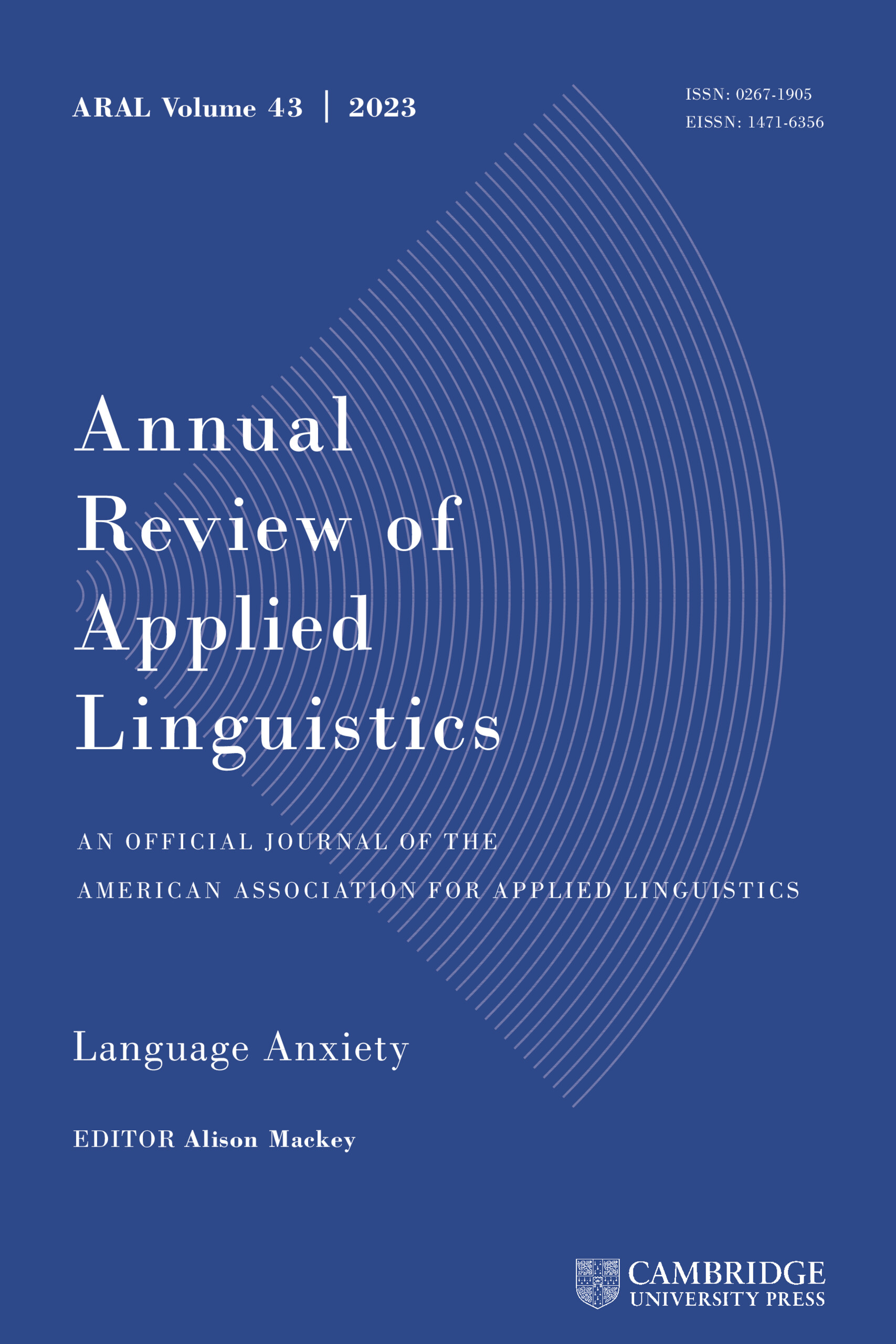Crossref Citations
This article has been cited by the following publications. This list is generated based on data provided by
Crossref.
Cheng, An
2006.
Understanding learners and learning in ESP genre-based writing instruction.
English for Specific Purposes,
Vol. 25,
Issue. 1,
p.
76.
Pecorari, Diane
2006.
Visible and occluded citation features in postgraduate second-language writing.
English for Specific Purposes,
Vol. 25,
Issue. 1,
p.
4.
Cheng, An
2007.
Symposium article: Simulation-based L2 writing instruction: Enhancement through genre analysis.
Simulation & Gaming,
Vol. 38,
Issue. 1,
p.
67.
Montemayor-Borsinger, Ann
2009.
Working with disciplinary discourses in the light of systemic functional theory.
DELTA: Documentação de Estudos em Lingüística Teórica e Aplicada,
Vol. 25,
Issue. 1,
p.
131.
Negretti, Raffaella
and
Kuteeva, Maria
2011.
Fostering metacognitive genre awareness in L2 academic reading and writing: A case study of pre-service English teachers.
Journal of Second Language Writing,
Vol. 20,
Issue. 2,
p.
95.
Yasuda, Sachiko
2011.
Genre-based tasks in foreign language writing: Developing writers’ genre awareness, linguistic knowledge, and writing competence.
Journal of Second Language Writing,
Vol. 20,
Issue. 2,
p.
111.
Marra, Meredith
2012.
The Handbook of English for Specific Purposes.
p.
175.
Koester, Almut
2012.
The Encyclopedia of Applied Linguistics.
Upton, Thomas A.
and
Connor, Ulla
2012.
The Encyclopedia of Applied Linguistics.
Northcott, Jill
2012.
The Encyclopedia of Applied Linguistics.
Hirvela, Alan
2012.
The Encyclopedia of Applied Linguistics.
BOWLES, HUGO
2012.
Analyzing Languages for Specific Purposes Discourse.
The Modern Language Journal,
Vol. 96,
Issue. s1,
p.
43.
ARNÓ–MACIÀ, ELISABET
2012.
The Role of Technology in Teaching Languages for Specific Purposes Courses.
The Modern Language Journal,
Vol. 96,
Issue. s1,
p.
89.
Belcher, Diane
2012.
The Handbook of English for Specific Purposes.
p.
535.
Goh, Christine C. M.
2012.
The Handbook of English for Specific Purposes.
p.
55.
Bloch, Joel
2012.
The Handbook of English for Specific Purposes.
p.
385.
Chostelidou, Dora
and
Griva, Eleni
2013.
In-service Training Needs of English Language Teachers and Vocational Education.
Multilingual Academic Journal of Education and Social Sciences,
Vol. 1,
Issue. 1,
Isani, Shaeda
2014.
Ethnography as a research-support discipline in ESP teaching, learning and research in the French academic context.
ASp,
p.
27.
Hsu, Liwei
2014.
Effectiveness of English for specific purposes courses for non-English speaking students of hospitality and tourism: A latent growth curve analysis.
Journal of Hospitality, Leisure, Sport & Tourism Education,
Vol. 15,
Issue. ,
p.
50.
Sidiropoulou, Maria
and
Tsapaki, Efpraxia
2014.
Conceptualisations across English–Greek parallel press data: a foreign language teaching perspective.
The Interpreter and Translator Trainer,
Vol. 8,
Issue. 1,
p.
32.




